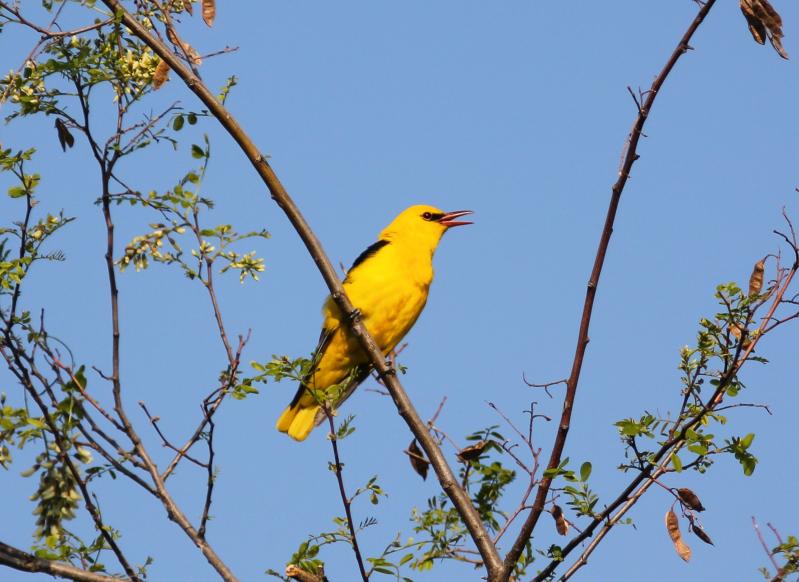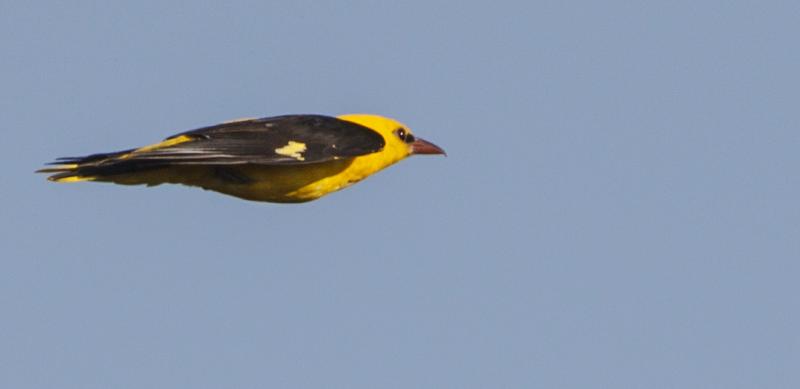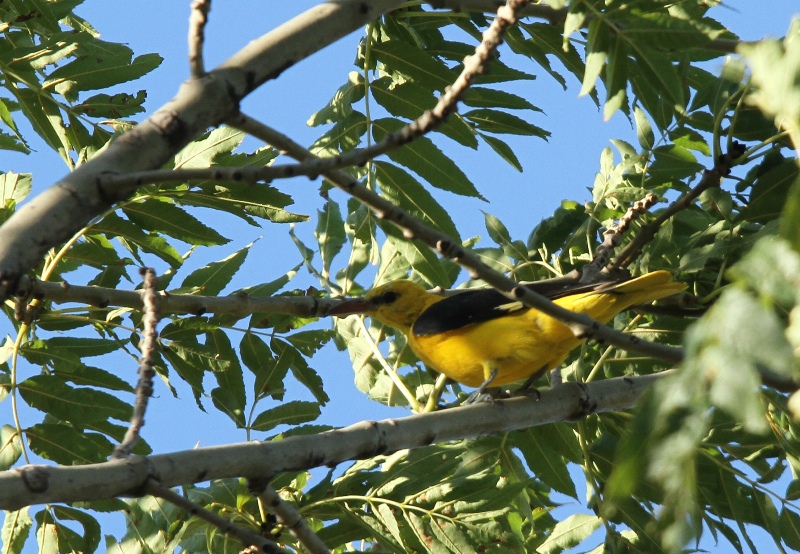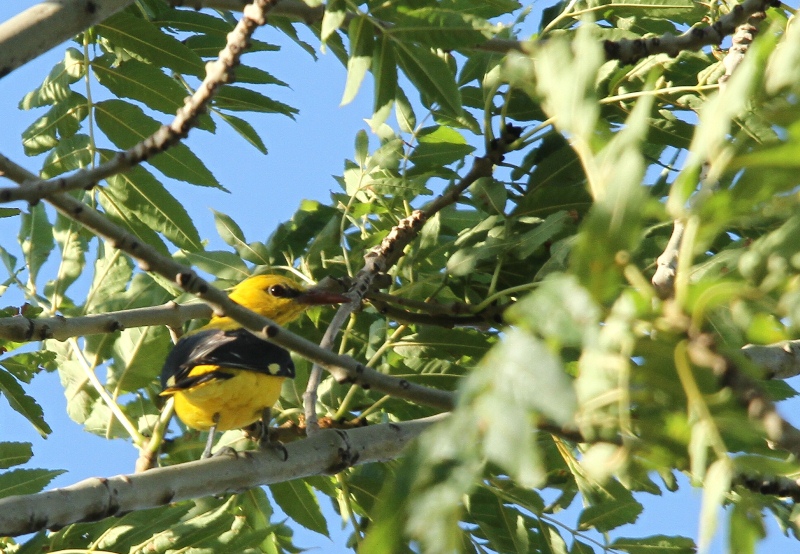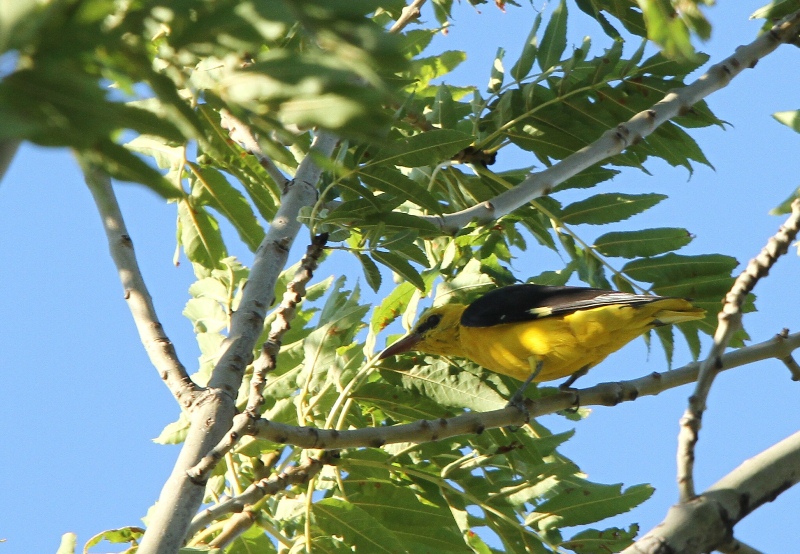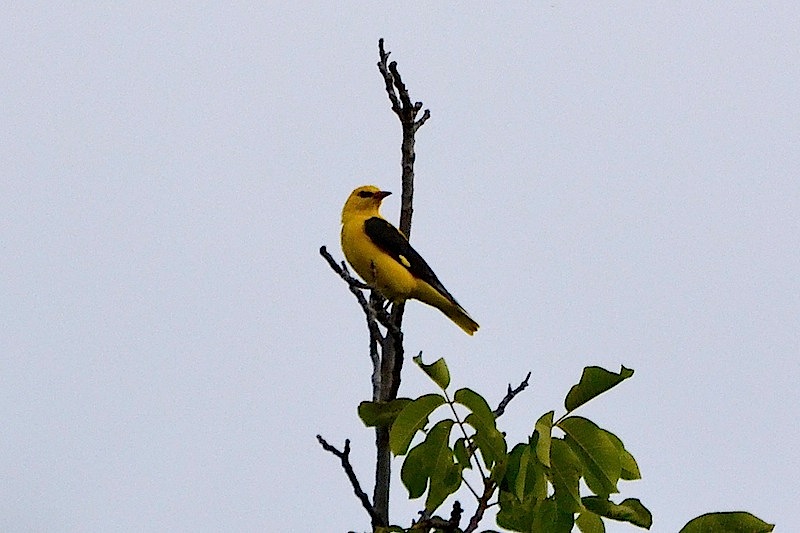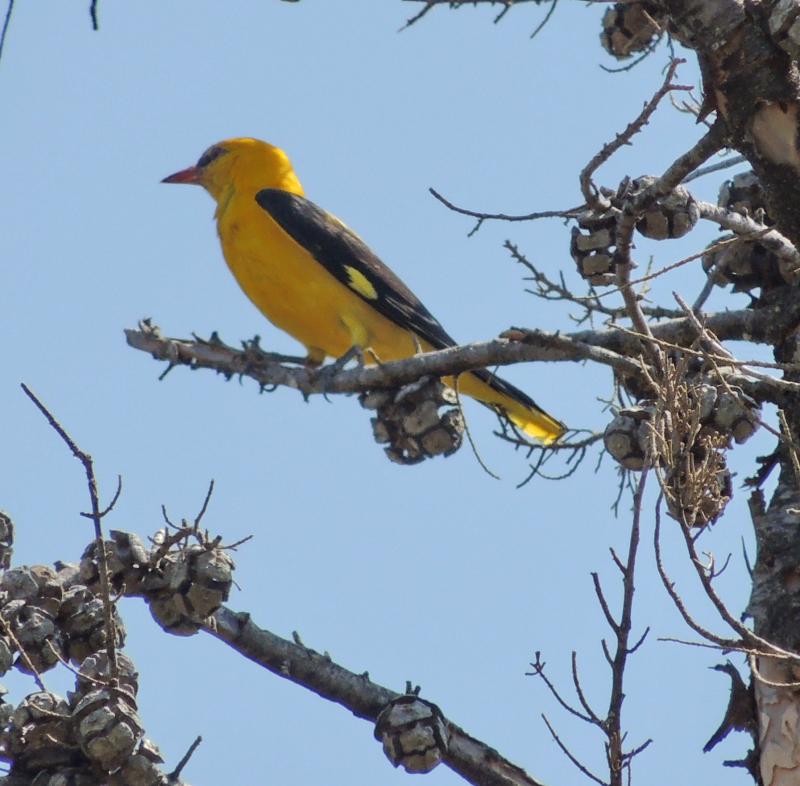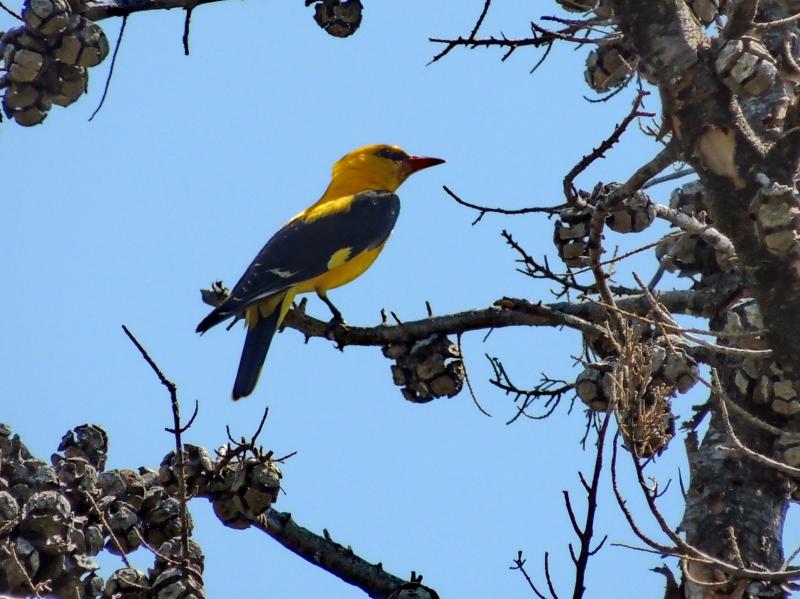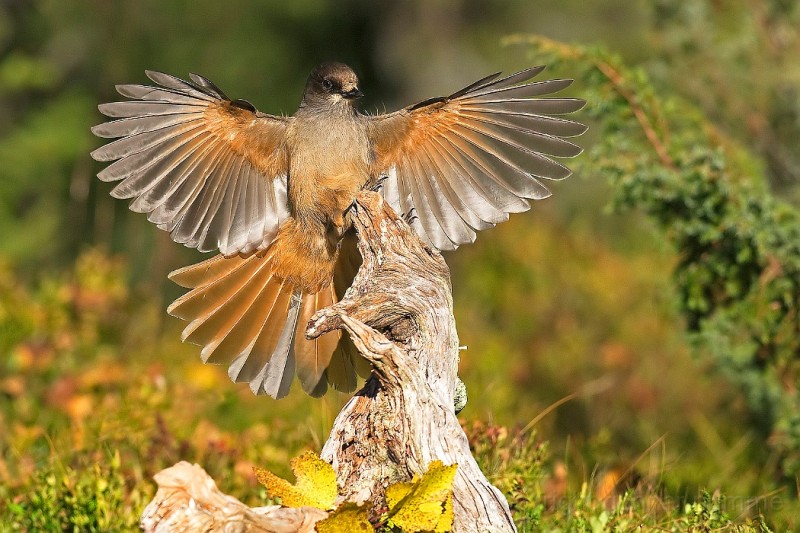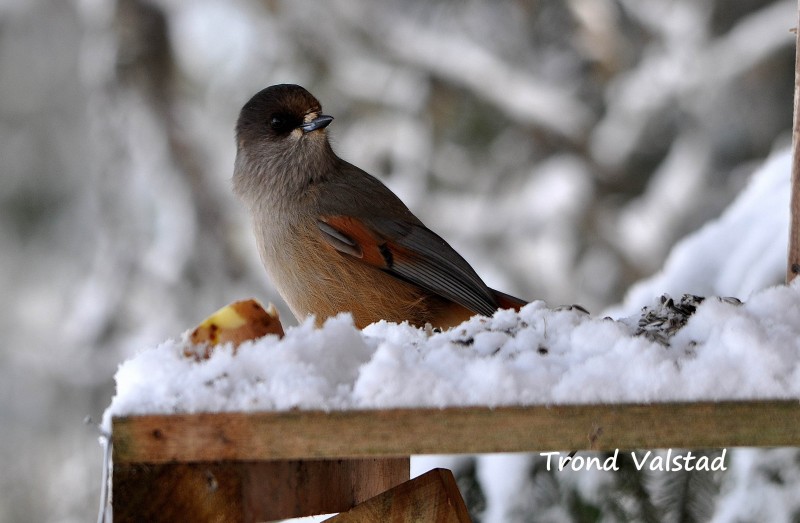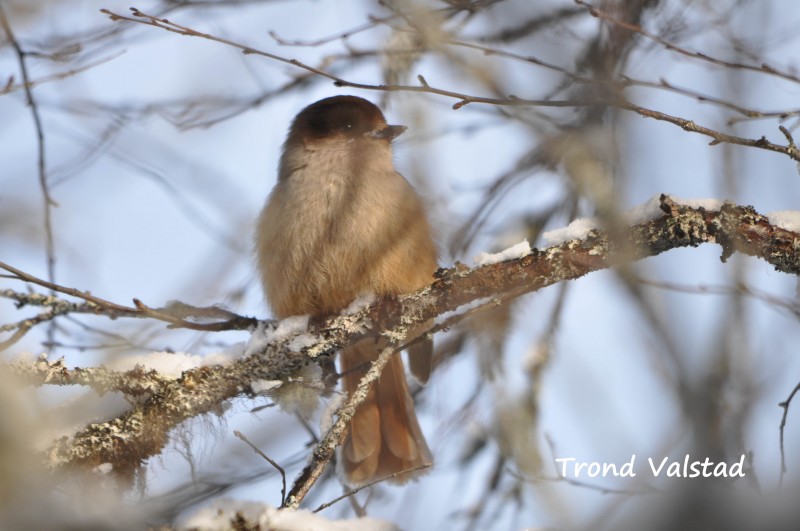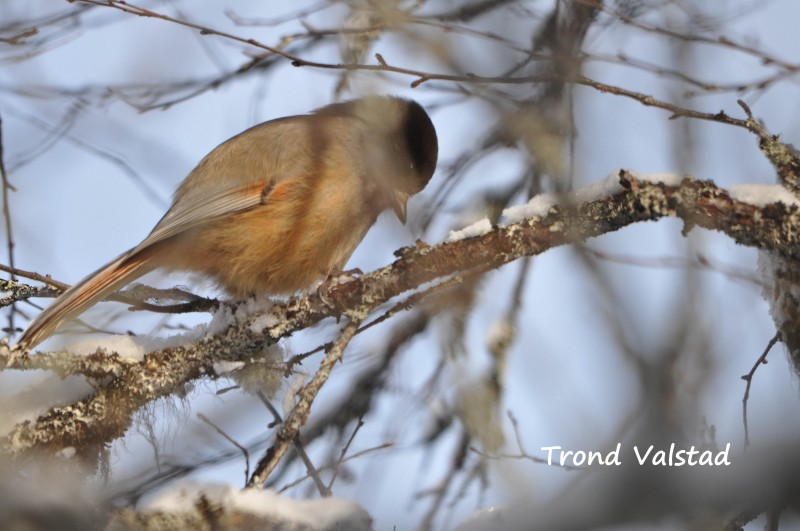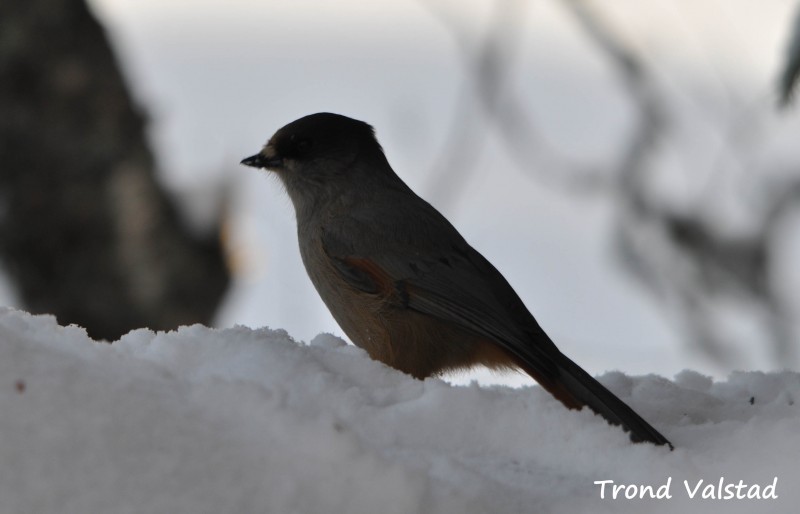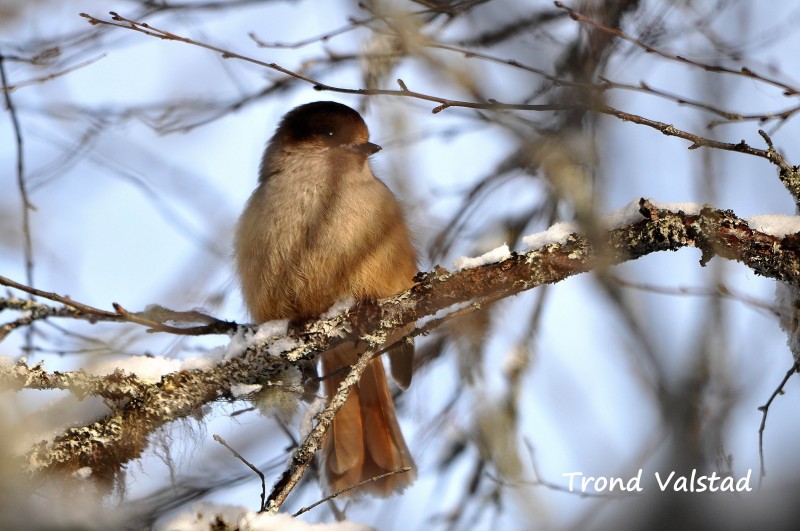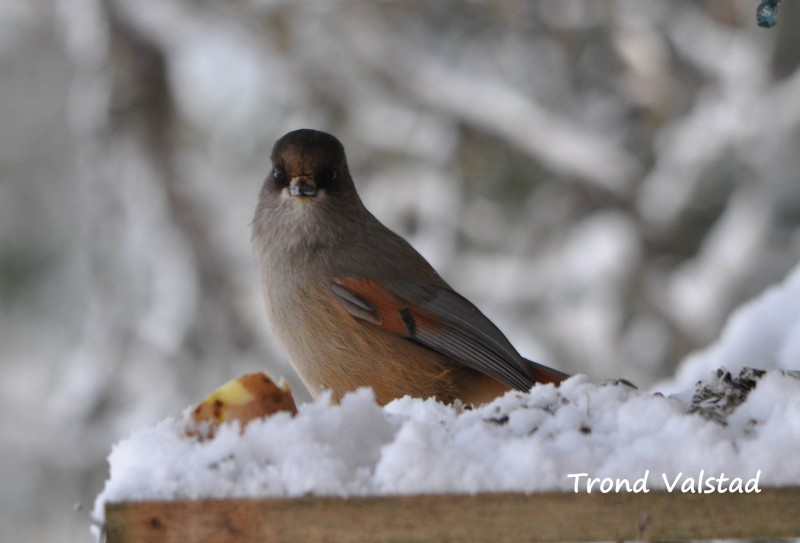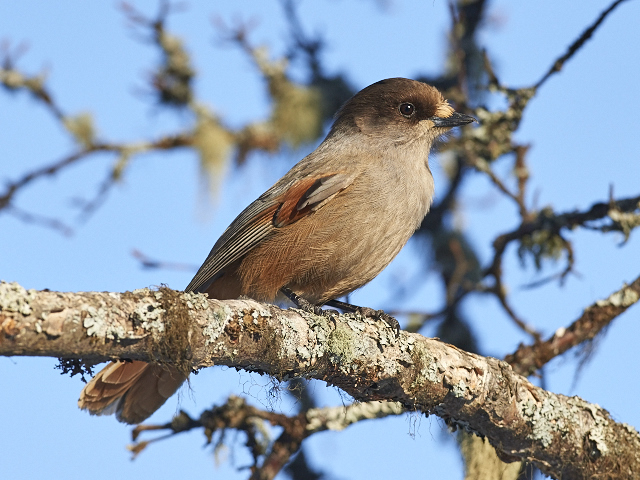Golden Oriole (Oriolus oriolus)
Siberian Jay (Perisoreus infaustus)
Adult male unmistakable if seen well. Body and head bright yellow, lores, wings and tail black. Females and young males less distinct, with lime-green back, pale, streaked underparts and black wings and tail. Bill quite strong with reddish colour in adults, and grey in young birds. Despite the bright plumage the bird is difficult to see due to skulking behaviour in foliage. Usually spotted when moving from tree to tree in undulating flight. Then resembles a large thrush or woodpecker, quickly darting upwards into the next tree-top.
Sound:Varied repertoire, but song and common contact call very distinct. Song a series of 1-2 seconds long phrases of 3-5 yodeling, clear, fluting notes, interspersed with 2-3 second pauses. Tone very full-bodied, melodic and pleasing. Contact call surprisingly different: A forced, drawn "weeackt", slightly resembling Jay, but less harsh, and much more nasal. Other sounds include a Wryneck-like warning call.
Contact call, song:
Distribution:
Wikipedia: map (se also Xeno-canto below)
Ecology:Birdlife ecology
Links:
Observation.org Latest observations
Image search Flickr NB! May give other species
CCPretty unmistakable. Dark brown to grey plumage, with conspicuous rusty patches on wings and tail. Noticeably smaller and slimmer than Jay. Seems all brown when perched, but rusty wings and tail immediately apparent when flying. Flight undulated and several birds are usually following eachother. A social, and very little shy bird.
Sound:Rich repertoire but not very vocal. Song a subdued chirping stream of squeaky notes and mimicry. Alarm call a loud, mewing, buzzard-like "eeeeaaah".
Song:
Distribution:
Wikipedia: map (se also Xeno-canto below)
Ecology:Birdlife ecology
Links:
Observation.org Latest observations
Image search Flickr NB! May give other species
CC
 English
English Albanian
Albanian
 Armenian
Armenian
 Bulgarian
Bulgarian
 Catalan
Catalan
 Croatian
Croatian
 Czech
Czech
 Danish
Danish
 Dutch
Dutch
 Finnish
Finnish
 French
French
 Georgian
Georgian
 German
German
 Greek
Greek
 Hungarian
Hungarian
 Italian
Italian
 Latvian
Latvian
 Lithuanian
Lithuanian
 Macedonian
Macedonian
 Norwegian
Norwegian
 Polish
Polish
 Portuguese
Portuguese
 Romanian
Romanian
 Russian
Russian
 Sami : Lule sami
Sami : Lule sami
 Sami : North sami
Sami : North sami
 Sami : South sami
Sami : South sami
 Scientific names
Scientific names
 Serbian
Serbian
 Spanish
Spanish
 Swedish
Swedish
 Ukrainian
Ukrainian

